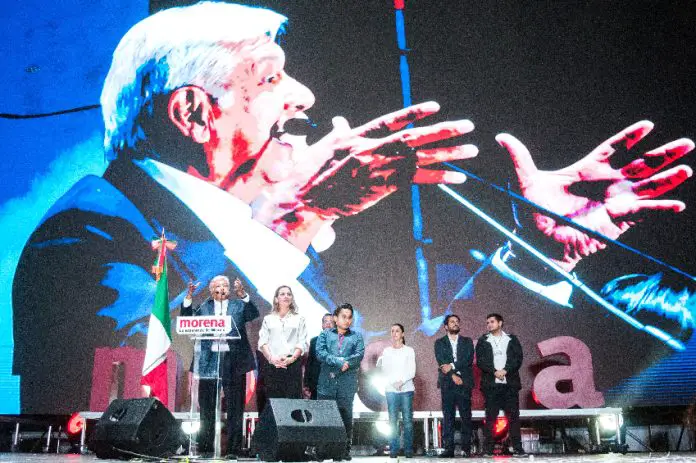The advent of populist movements, from the left and the right, has been accompanied by a rejection of globalization and a systematic call for the reappearance of an all-powerful government, aimed at correcting the ills that afflict humanity.
This populist narrative does not deny the extraordinary progress in terms of prosperity and poverty reduction that has characterized the world in recent decades, but it argues that “savage” or unfettered capitalism has caused extreme income inequality, benefiting mainly the rich.
The narrative is appealing, but it has served less to improve the welfare of the population than to consolidate new interests in power. This poses a clear dilemma in the context of electing Mexico’s next president: Closing the country’s doors to the world, or finding ways for the entire population to reap the benefits of the enormous opportunities that come with proximity to our two northern neighbors.
The economic liberalization that Mexico embarked on since the 1980s was little more than an acceptance that global technological change opened opportunities the country couldn’t seize without significantly changing its economic strategy and institutional framework. Today, the Mexican economy is much larger and more productive than it was half a century ago, and citizens enjoy political freedoms previously unimaginable.
The election of a new president, regardless of the winner, will determine the state’s willingness to chart a course that allows the entire population to live in an environment of security and certainty, or to persist in the institutional and economic destruction initiated by the outgoing government of President Andrés Manuel López Obrador.
The key point for those seeking progress for Mexico has to be accepting that globalization is an inexorable reality that has been extraordinarily beneficial for the country. The ills often associated with it — such as violence, inequality and poor-quality education — have been the result of what has not been done. The country can only attempt to isolate itself from globalization if it is willing to pay the price in terms of low growth, increased poverty and more inequality, losing out on the technological change upon which future progress depends.
The outgoing administration has attempted to play two contradictory games. On the one hand, it has allowed the continuation of integration with our northern neighbors, but did nothing to improve infrastructure or opportunities for the population to participate in that economic space. On the other hand, the administration has undermined the country’s security, hindered the development of energy capacity and created an environment of enormous uncertainty regarding the future, including the conditions necessary for the USMCA to continue after the review in 2026.
All of this calls into question the sustainability of current sources of growth. The winner of the election in June will have to define policy on this matter immediately.
Nations that, in recent decades, chose to face up to these challenges share very similar characteristics: They focused on improving the quality of their educational systems, built the necessary infrastructure and modified legislation to facilitate the transition of their economies. Above all, they changed their way of understanding development and embarked on a crusade to ensure that all of society could join the process.
By observing nations that thrive and those that lag behind, the path is evident. The successful countries embraced globalization and continue to do so, in parallel with adjusting and adapting their strategies and policies to ensure that their populations have access to every possible opportunity.
Mexico has followed a less consistent and more uncertain path. While there was a clear and consistent vision in the first iteration of Mexican reforms in the 1980s and 90s, the truth is that this did not last long. The liberalization of the economy was inconsistent with the way companies and banks were privatized, and many of the reforms, especially those undertaken in the previous administration of Enrique Peña Nieto (extraordinarily ambitious in themselves), were executed in such a way that they never gained legitimacy, and were therefore politically vulnerable.
The crucial point is that Mexico has spent decades pretending to reform when, in reality, it has only adapted at the lowest possible cost, preventing more successful and attractive results from being achieved for the population. That is the real dilemma for the next government.
Mexico has not embraced the need to be successful, has not accepted the imperative (and inevitable) nature of the new reality, all of which has made possible the attacks the country is now experiencing against its own future.
Globalization has not ceased to exist; the question is whether Mexico will eventually make it its own, or continue to pretend that its economic and political impoverishment is merely a matter of chance.
Luis Rubio is the president of México Evalúa-CIDAC and former president of the Mexican Council on International Affairs (COMEXI). He is a prolific columnist on international relations and on politics and the economy, writing weekly for Reforma newspaper, and regularly for The Washington Post, The Wall Street Journal and The Financial Times.
Disclaimer: The views expressed in this article are solely those of the author and do not necessarily reflect the views of Mexico News Daily, its owner or its employees.
